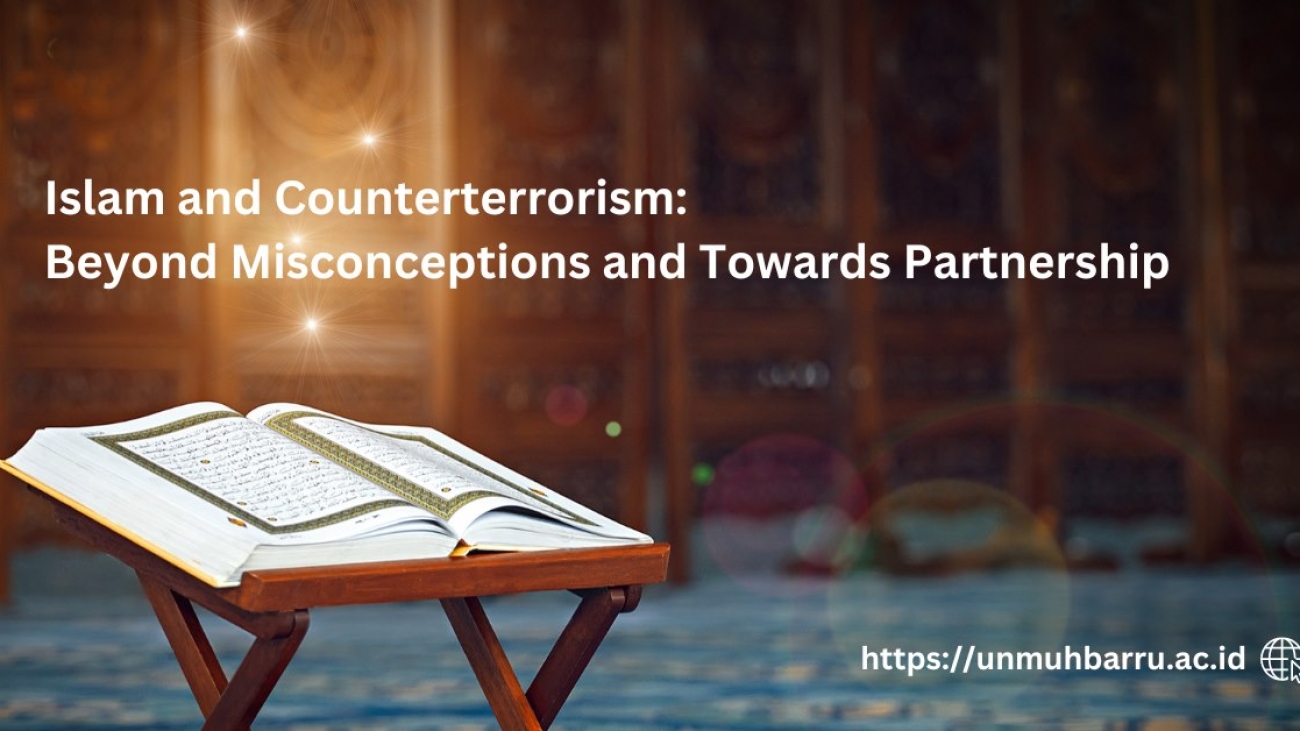Unmuhbarru.ac.id, Barru – Islam, a religion followed by over 1.5 billion people globally, is too often portrayed in the media as inherently linked to terrorism. This dangerous misconception not only fosters Islamophobia but also hinders effective counterterrorism efforts. Examining the core tenets of Islam and the vast majority of Muslims’ peaceful stance against violence is crucial for fostering cooperation in the fight against terrorism.
Moving from Misconceptions to Islamic Principles
The Quran, the central text of Islam, emphasizes peace and justice. It instructs believers to fight only in self-defense: “And fight in the way of Allah those who fight you but do not transgress. Indeed, Allah does not like transgressors.” (Quran 2:190). Extremist groups, however, cherry-pick interpretations of scripture to justify violence, ignoring the Quran’s emphasis on peaceful solutions and the sanctity of human life. Understanding these nuances is critical to dismantling the narrative that equates Islam with terrorism.
Beyond Condemnation: Muslims on the Frontlines of Peacebuilding
The overwhelming majority of Muslims actively condemn terrorism. Muslim communities themselves are often the first targets of terrorist violence. Organizations like the Islamic Relief Worldwide and the Muslim Council of Britain not only condemn extremism but also work tirelessly to counter radicalization efforts and promote peacebuilding initiatives.
The Complexities of Radicalization
While Islam itself does not promote terrorism, some individuals become radicalized through a complex interplay of factors. Feelings of social alienation, political marginalization, and economic hardship can create fertile ground for extremist ideologies to take root. Extremist groups often exploit these grievances and manipulate religious texts to justify violence. Countering violent extremism requires addressing these root causes, not just the extremist narratives themselves.
Promoting Social Cohesion: Countering Radicalization from the Ground Up
Building bridges between communities and fostering interfaith dialogue are essential to combat Islamophobia and reduce the appeal of extremist ideologies. Educational initiatives that promote a nuanced understanding of Islam and its emphasis on peace, justice, and social responsibility can help dismantle negative stereotypes. Investing in social programs that address issues of poverty and social exclusion can help prevent individuals from feeling marginalized and susceptible to radicalization efforts.
Empowering Grassroots Initiatives: Equipping Muslim Communities
Muslim communities hold the key to identifying and addressing potential radicalization within their own spaces. Providing resources and support to religious leaders, educators, and social workers can equip them to counter extremist narratives and foster resilience against violence. Initiatives that empower women and youth within Muslim communities are particularly important, as these groups are often targeted by extremist recruiters.
Security Partnerships Rooted in Mutual Respect
Collaboration between governments, religious leaders, and security agencies is essential for effective counterterrorism efforts. Muslim communities can be valuable partners in identifying potential threats and providing insights into the factors that contribute to radicalization. Law enforcement agencies must be mindful of building trust with Muslim communities and avoid tactics that alienate or demonize entire populations. This collaborative approach, rooted in mutual respect and مشاركة (Mushtarika: cooperation), is the cornerstone of effective counterterrorism strategies.
In conclusion, Islam is a religion that overwhelmingly promotes peace and social justice. Combating terrorism requires a nuanced understanding of the root causes of radicalization and fostering cooperation between all stakeholders. By moving beyond misconceptions, promoting interfaith dialogue, and empowering Muslim communities, we can create a more secure and just future for all.

